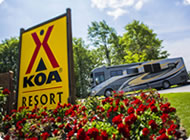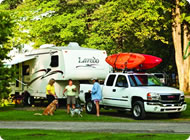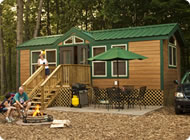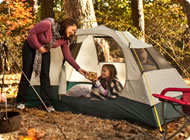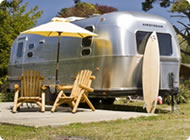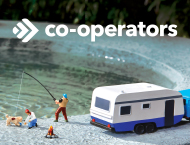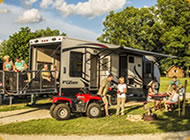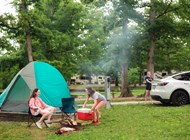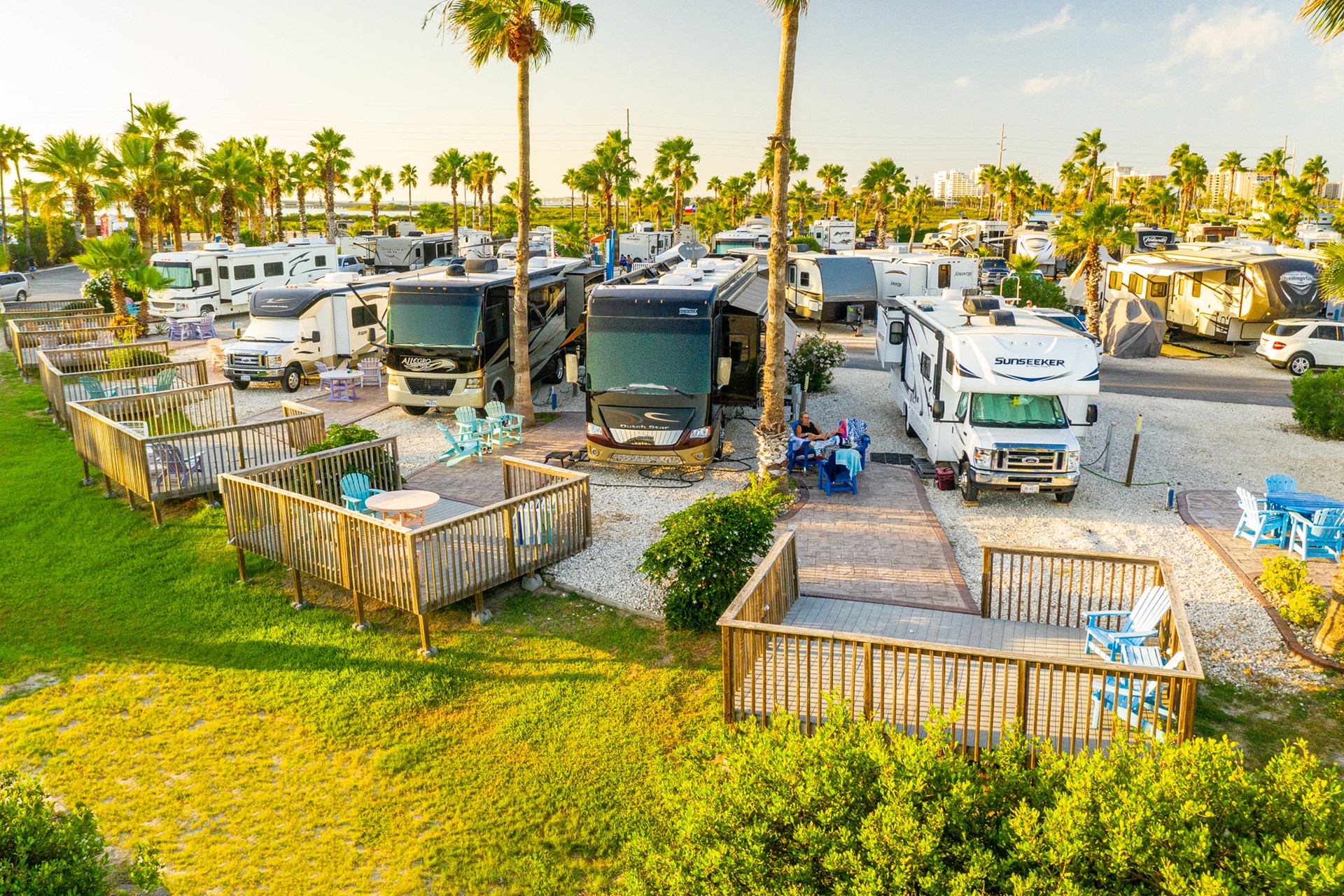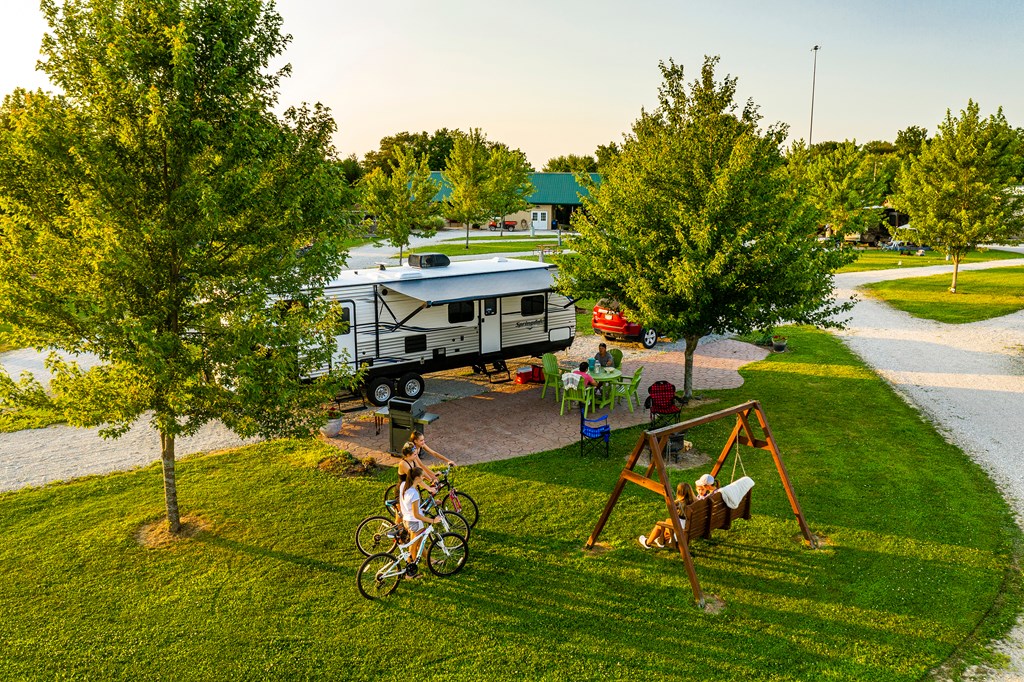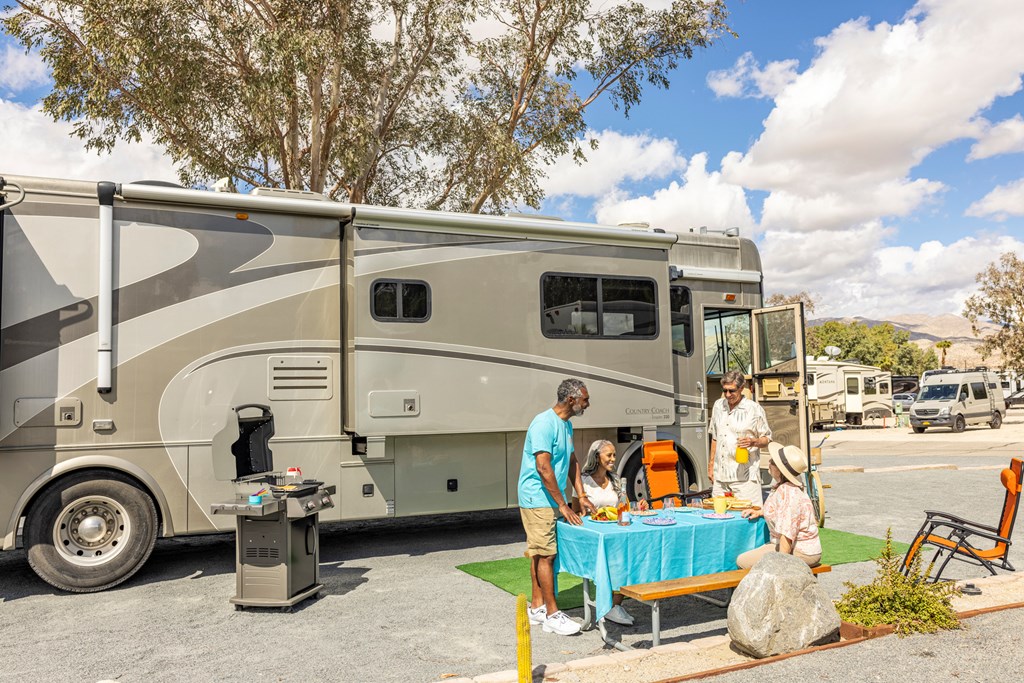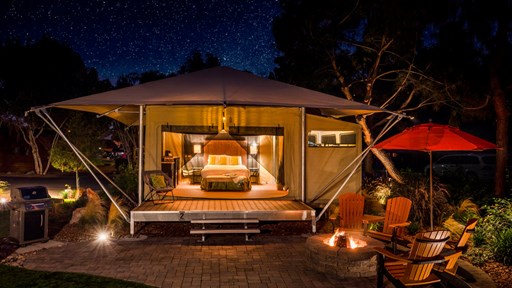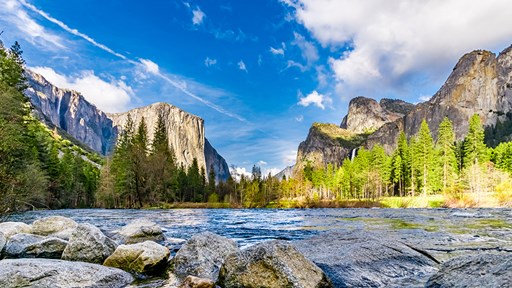Spending a night in a tent set up in your own backyard is entry-level camping. Extended-stay camping, on the other hand, requires a far greater investment. After all, you’re committing to camping weeks (if not months) in one spot. That said, you don’t have to be an Eagle Scout or someone who can parallel park a 30-foot-long Class A motorhome in order to have a successful experience. You don’t even need to know the difference between a Class A and a Class C motorhome! Still, you’ll want to be armed with some insight. From the best way to book your stay to avoiding worst-case scenarios like ending up with an unlevel site or a ½-mile-walk (uphill both ways) to the facilities, here are five top tips for an extended stay camping trip.
1. Call Ahead to Make Your Reservation
You can do a lot online these days, but if you want a discounted extended-stay rate, you’ll probably have to make an old-fashioned phone call. Many campgrounds don’t advertise extended-stay discounts or off the option to book a stay of more than 28 nights via their website. Talking with the campground staff is another great way to get a feel for the campground. Ask how many other extended stay campers they usually have, and if it’s not many, that may be a red flag worth noting. On the other hand, if they have lots, that might be an indication that you won’t get a good discount.
2. Do Your Homework on the Destination
Before you commit to a place for longer than a few days, make sure it’s really where you want to be. If you pay for your site upfront, it might be hard to get a refund should you decide to move on. For example, maybe the campground you choose is quiet and relaxing during the week, but on the weekends, it’s as crowded as the Texas State Fair and turns into a 24/7 party. Or maybe your destination is convenient to get to, but it doesn’t offer enough things to do for kids. No one wants to hear “I’m bored” before you even unpack.
3. Do Your Homework on the Campsite
Committing to a campsite for more than a week is also a big deal. Call ahead and ask the host which site they’d personally want to spend an extended amount of time in and why. Or ask if you can be put next to other extended-stay campers so you don’t have to deal with a revolving door of new neighbors. And don’t forget to find out how far you are from the pool, playground, and most importantly, the bathroom.
4. Know the Campground Rules for Extended Stays Before You Book
Extended stays often involve discounts, but they also come with additional rules that may not apply to nightly sites. For example, in an effort to maintain a certain image, some campgrounds require that your RV be no more than 10 years old, or if it’s a vintage Airstream, that it’s clean and well-cared for. And some campgrounds that don’t allow third-party towing require that you own both your RV and the vehicle you’re towing it with.
5. Make Sure Your Equipment is Good for a Good Time and a Long Time
In a perfect world, you’d have time to assess all of your gear before every camping trip and make sure it’s prepared for the elements. But the reality is, we’re often too busy to do so. Still, if you’re going to be away for an extended period of time, it’s in your best interest to make sure you have everything in advance and that everything is in good condition. Spending two nights on a leaky air mattress is doable. But spending 20 nights on a leaky air mattress? That’s probably asking too much.
 Katie Jackson is a writer and media specialist based in Montana’s Big Sky Country. Living and working everywhere from New York to Nicaragua, Katie is no stranger to adventure. When she’s not traveling the world (or writing about it!) she’s busy chasing after a Leonberger named Zeus. Follow Katie’s travels on Instagram @katietalkstravel.
Katie Jackson is a writer and media specialist based in Montana’s Big Sky Country. Living and working everywhere from New York to Nicaragua, Katie is no stranger to adventure. When she’s not traveling the world (or writing about it!) she’s busy chasing after a Leonberger named Zeus. Follow Katie’s travels on Instagram @katietalkstravel.







